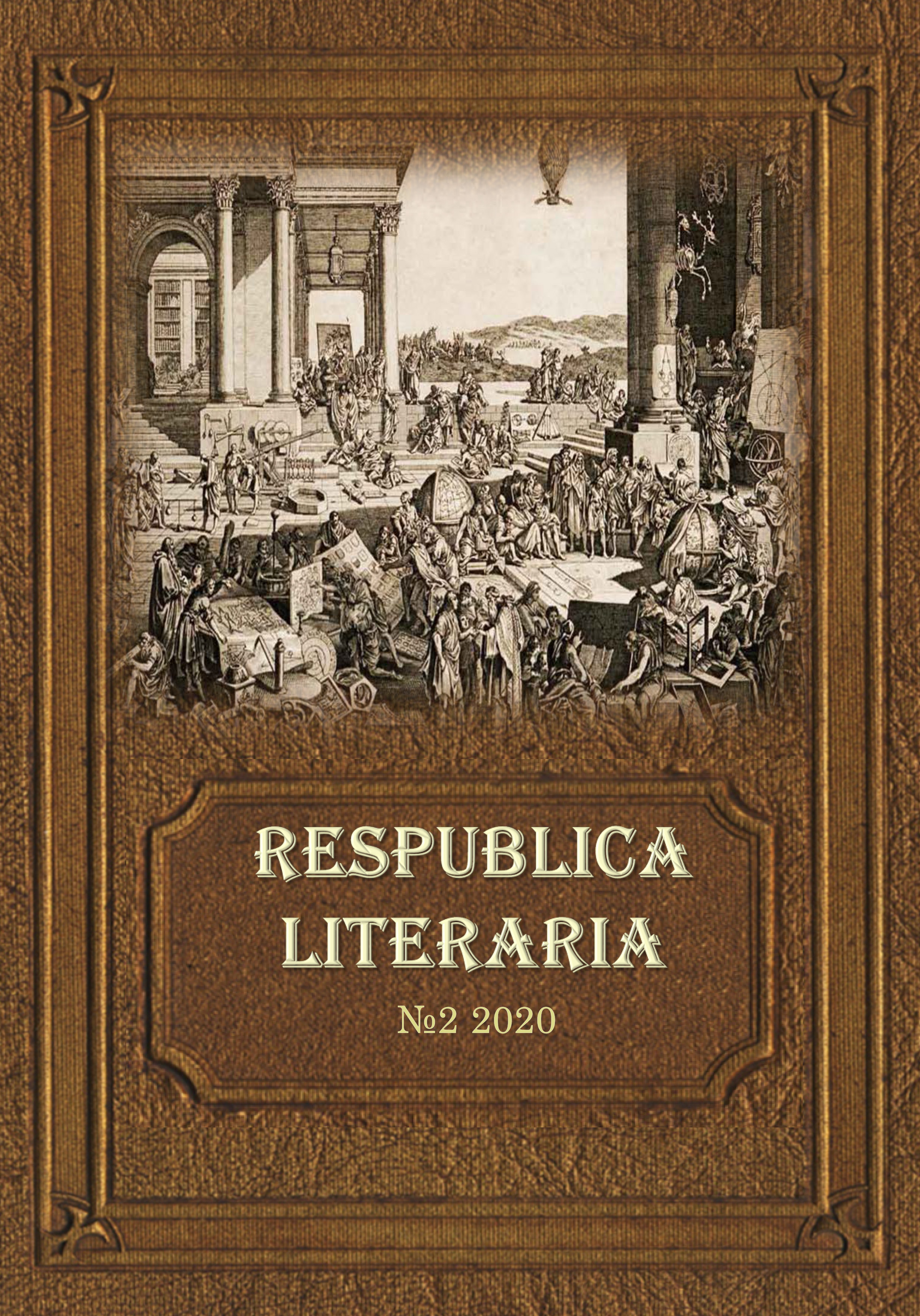Sanzhenakov A. A. Institutionalization of a philosophical school: the origins of Justus Lipsius’ neostoicism
DOI:
https://doi.org/10.47850/RL.2020.1.2.95-101Keywords:
Stoics, neostoicism, Seneca, Justus Lipsius, philosophical school, historical contextAbstract
The article is devoted to the consideration of the neostoicism of Justus Lipsius (1547–1606) in order to show that there is a set of reasons for the renovation and institutionalization of any philosophical school: the historical context, education, community, personality and biography of its leader. As for Justus Lipsius, a philologist and publisher of ancient texts (Tacitus, Seneca), the following factors influenced. Since Lipsius lived in turbulent times (the 16th century was marked by the Reformation and religious wars), he could not help but pay attention to Stoic philosophy, designed to give peace of mind in an unsettled world. Lipsius received an excellent education at a Jesuit college and at two universities – Cologne and Louvain. He was instilled in a love of ancient literature during his education, which predetermined his work. He was an outstanding person by nature and was formed in the university environment and in the intellectual circles of his time. He was, for instance, a member of the Familists, whose founder taught, among other things, the permissibility of changing denominations. Lipsius’s interpretation of the Stoic doctrine suggests that the Stoics came closest to Christianity, unlike other ancient philosophers. All these factors determined the revival of Stoicism in the 16th century.
References
Блохина, Н. А. (2014). Онтология Дэвида Армстронга и Аристотеля: незеркальное отражение. Вестник Московского университета. Серия 7. Философия. № 4. С. 65-82.
Blokhina, N. A. (2014). David Armstrong’s and Aristotle’s ontology: nonspecular reflection. Moscow University Bulletin. Series 7. Philosophy. no. 4. pp. 65-82. (In Russ.)
Гаджикурбанова, П. А. (2012). Этика Ранней Стои: учение о должном. М.
Gadzhikurbanova, P. A. (2012). Ethics of the Early Stoa: the Doctrine of Due. Moscow.
(In Russ.)
Марк Аврелий. (1993). Размышления. Пер. А. К. Гаврилова. СПб.
Marcus Aurelius. (1993). Meditations. Transl. A. K. Gavrilova. St. Petersburg. (In Russ.)
Новикова, О. Э. (2005). Политика и этика в эпоху религиозных войн: Юст Липсий (1547-1606). М.
Novikova, O. E. (2005). Politics and Ethics in the Age of Religious Wars: Justus Lipsius (1547-1606). Moscow. (In Russ.)
Липсий, Ю. (2005). Шесть книг политики или государственного учения, рассматривающие по преимуществу монархию. Пер. О. Э. Новиковой. Новикова, О. Э. Политика и этика в эпоху религиозных войн: Юст Липсий (1547-1606). М. С. 315-386.
Lipsius, J. (2005). Six Books on Politics or Civil Doctrine. Transl. O. E. Novikova. In Novikova, O. E. Politics and Ethics in the Age of Religious Wars: Justus Lipsius (1547-1606). Moscow. pp. 315-386. (In Russ.)
Armstrong, D. M. (2010). Sketch for a Systematic Metaphysics. N.Y.
Becker, L. C. (1998). A New Stoicism. Princeton.
Grafton, A. T. (1987). Portrait of Justus Lipsius. American Scholar. Vol. 56. no. 3. pp. 382-390.
Kluyskens, J. (1974). Justus Lipsius (1547-1606) and the Jesuits: with four unpublished letters. Humanistica Lovaniensia. Vol. 23. pp. 244-270.
Lagrée, J. (2004). Constancy and Coherence. In Strange, S. K., Zupko, J. (eds.). Stoicism: Traditions and Transformations. Cambridge. Cambridge University Press. pp. 148-176.
Lipsius, J. (1997). A Guide to Stoic Philosophy in Three Books: Selections. Transl. R. V. Young. In Kraye, J. (ed.). Cambridge Translations of Renaissance Philosophical Texts. Vol. 1: Moral philosophy. Cambridge University Press. pp. 200-209.
Morford, M. (1991). Stoics and Neostoics. Rubens and the Circle of Lipsius. New Jersey.
Downloads
Published
How to Cite
Issue
Section
License

This work is licensed under a Creative Commons Attribution-NonCommercial-NoDerivatives 4.0 International License.
https://oc.philosophy.nsc.ru/remote.php/webdav/%D0%94%D0%BE%D0%B3%D0%BE%D0%B2%D0%BE%D1%80%20%D1%81%20%D0%B0%D0%B2%D1%82%D0%BE%D1%80%D0%BE%D0%BC%20RL-%D0%BF%D1%80%D0%B0%D0%B2.doc





